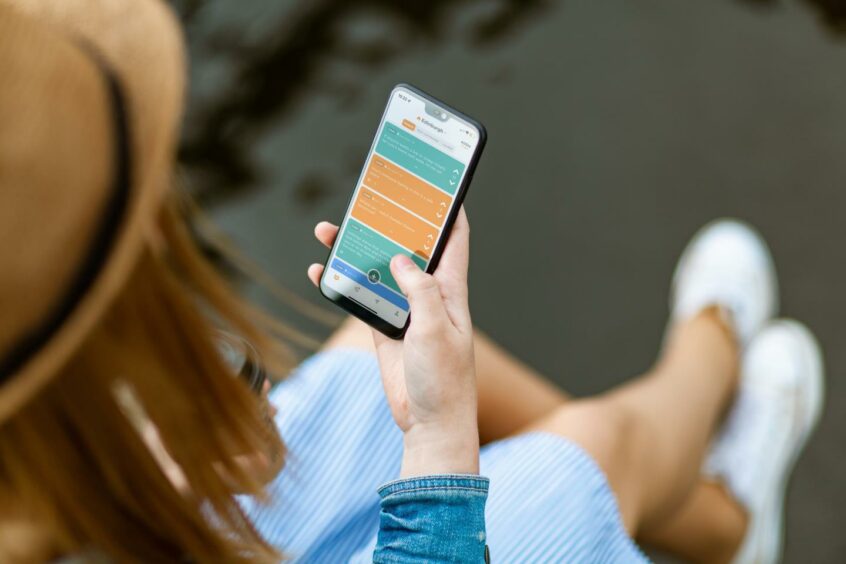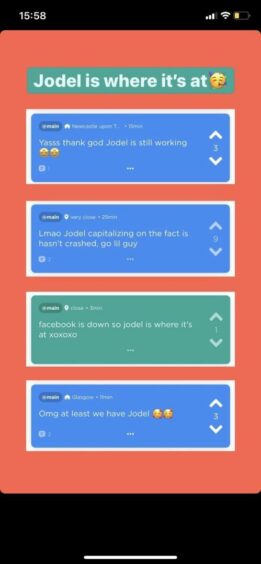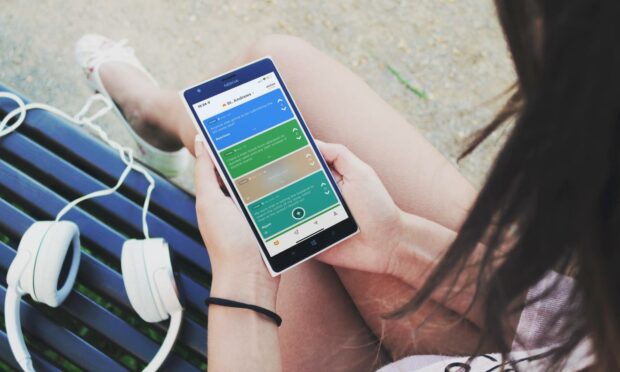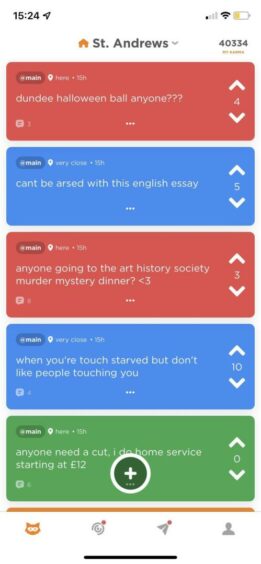A new app aimed at improving the mental wellbeing of students across Scotland has launched at St Andrews University.
Jodel is a hyperlocal social media app that instantly connects you to your local community, helping students navigate university life.
It aims to replace the ‘fake, misleading nature’ of other social media platforms. And take pressure off students who just want to make friends and get advice.

Jodel has been introduced at the University of St Andrews, initially being rolled out there and in Glasgow and Edinburgh.
It will then become available more widely across Scotland, before expanding to the rest of the UK.
‘Reconnecting students is so important’
Bina, 21, is studying Biology at St Andrews in her final year.
She says: “People in first and second year don’t have ‘families’ yet, which are normally assigned in St Andrews’ Raisin’ Weekend.
“It’s a tradition which has been going on for years to help new students.
“People have really missed out in the last 18 months and have had less chances to make friends. Jodel offers people a new opportunity to meet fellow students at the university.
“In a small university like St Andrews, reconnecting students with each other is so important, otherwise you can feel isolated.”
A profileless app
On Jodel, users don’t have profiles and there is a default 10km radius.
This means ‘Jodelers’ can be themselves without judgement and connect with people around them.
A quarter of UK 17 to 24-year-olds surveyed say they are most annoyed by the fake, misleading nature of other social media platforms like Instagram.

One in seven say these social media platforms lead to feelings of insecurity and social pressure.
Jodel’s app is profileless for this reason, allowing students to ask for advice, share real-life stories and connect with like-minded people.
Advice from the local community
The app is already a hit in Europe with more than six million posts per day and more than seven million users, 95% of whom are 18-26 years old.
The Covid-19 pandemic made it difficult for students to meet one another, creating feelings of loneliness and isolation.
Socialising is still challenging for students as many teaching sessions are still taught remotely. And there are fewer large social occasions for people to meet.

On Jodel, new students can ask advice from their peers about their studies or where to buy books that help with their academic learning.
So far, it’s being used to ask candid questions and share stories about university experiences, as well as insights on the local area.
Popular conversations also include university advice, where to go out on nights out, part-time jobs, and mental health and relationship problems.
You can download Jodel here.

